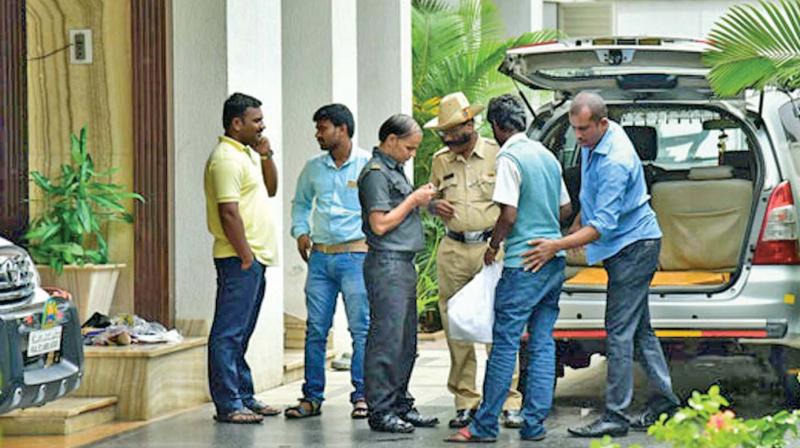If the price is right, loyalty is for sale

Disgusting as events surrounding politicians have been it's still too uncivilised to think of the fictional beheadings as in the Game of Thrones as a solution. There is nothing like money to oil the wheels of politics, which is why these all-expenses paid holidays are arranged for politicians. The very fear that their loyalties may be up for sale drives this strategy of sealing the legislators off and keeping them in great comfort. Can there be greater proof of the fact that all politicians are corrupt and it is only a matter of the price?
When a humble farmer's son from Kanakapura becomes worth Rs 250 crore and is chosen as the conduit for his party's money transactions, it becomes clear as daylight that politics is the best business to be in. Money will find a way to the door even if a first time legislator would like to believe he is there to change the old system and ring in the new. The packing of legislators into resorts by political parties, be it the Congress or the AIADMK, is tacit admission that loyalty is for sale.
The fact that the oldest party in the business of politics does this is testament to where we have come as a society. Graft was accepted as the new normal a long time ago. The scale of it is staggering now, but then the economy has boomed enough to make this possible. What is shocking is the brazen manner in which graft is dealt with these days. The only objection against the Income-Tax raids on the Karnataka minister D.K. Shivakumar seemed to stem from the timing and the venue. No explanation was offered as to why so much cash had been lying around here and there.
The Income-Tax department has claimed that Rs 300 crore in undeclared assets have been unearthed in the raids on premises of the minister, his kin and cohorts including his astrologer in multiple locations. His brother had declared Rs 80 crore in assets, which just makes the point once again that politics must be a money spinner. Quite apart from declaring assets in excess of Rs 330 crore, the family also is said to possess an equal amount in secret assets.
The oldest party seemed upset more with the alleged offer of Rs 15 crore per legislator loyalty for the Gujarat elections to the Rajya Sabha. The cartoon in Deccan Chronicle on Friday was eloquent in pointing out that it was safer to keep MLAs in jail than outside where the temptations are many. In the old days, it was rare to see a politician or a bureaucrat serve jail time for graft. Today, corruption has seeped in so much that there is not even the pretence of a denial.
The person who exposed one of India's first major scandals in 1958 was the then Prime Minister's son-in-law Feroze Gandhi who refused to heed Nerhu's call to deal with the financial shenanigan quietly. The steel magnate and big share market manipulator Haridas Mundhra went to jail, finance minister TT Krishnamachari resigned and Nehru just about emerged unscathed as action was seen to be taken although the scandal shook the government of the time.
Earlier, Feroze had also exposed Ram Kishan Dalmia for defrauding LIC.
It is the same party, having ruled most of India for 55 of 70 years, that defends vigorously those charged with corruption. The party has a chief minister on its rolls from whose residence cash was seized and yet he carries on as is nothing has been proved.
The power of money was first recognised by the party, a very early sign of which was a man pretending to be the PM's emissary took away one crore rupees from the State Bank of India. That was the first sign that Congress has had faith in moneybags and that was happened a long time ago.
It would be possible to rationalise political corruption in a way as parties need money. If in power, a party has to retain it. If out of power, the party has to seek it. Money helps buy loyalty or buy out loyalty. While everyone is aware of the power of money, not all can aggrandise it as quickly as the politicos do. A moral ambiguity, said to be deeply ingrained in our culture, ensures that the most corrupt leader can still go with folded hands to the people and seek their vote. Tamil Nadu is a good example.
The point is people are powerless against the aggrandisement of large fortunes by the smallest of politicians. The suspicion is a sizeable percentage of the nation's wealth has already been captured by the contractor-businessman-industrialist-babu-politician nexus. A proportion of what should have gone into building roads, drains and public transportation for people has been unfairly cornered. Raids may go on and cases are in courts for years, but nothing seems to happen towards bringing back all the wealth into the treasury and employing it for the public weal. This is the tragedy of India.

